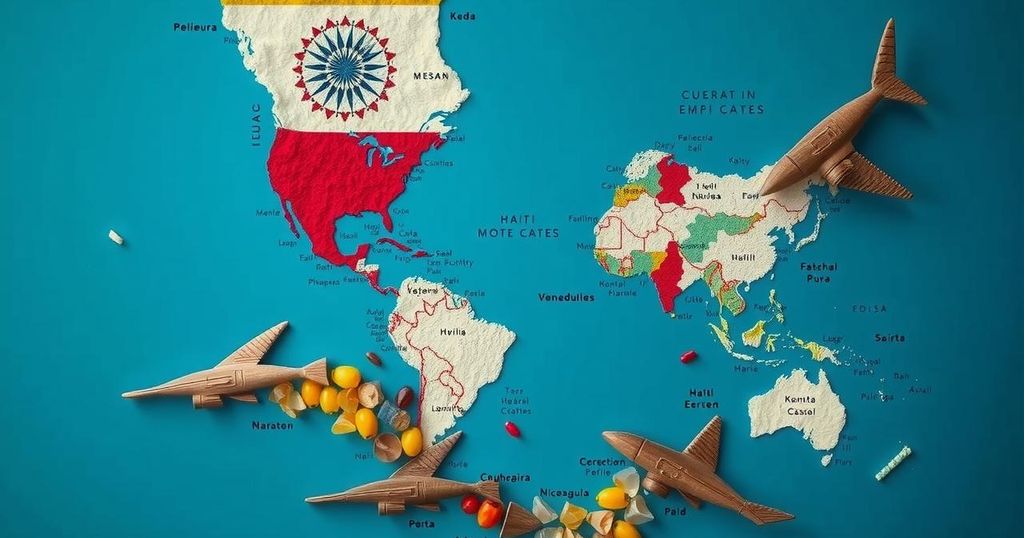The Biden administration has decided not to continue a two-year humanitarian parole program for migrants from Venezuela, Haiti, Cuba, and Nicaragua, affecting numerous individuals who gained entry since 2022. As new migrants may still enter the program, existing participants must seek other legal statuses or face deportation. This policy change occurs in the lead-up to the 2024 presidential election, reflecting a more stringent immigration stance.
The Biden administration has announced that it will not extend a two-year humanitarian parole program impacting migrants from Venezuela, Haiti, Cuba, and Nicaragua, which had been initiated in 2022. This program was designed to provide legal entry for migrants arriving by plane, allowing them to live and work in the United States while they pursued other legal statuses. Approximately 214,000 Haitians, 117,000 Venezuelans, 111,000 Cubans, and 96,000 Nicaraguans have benefited from this program. As the 2024 presidential election approaches, this decision aligns with Vice President Kamala Harris’s focus on stricter immigration policies, contrasting sharply with the rhetoric of former President Donald Trump, who has been openly critical of the current administration’s immigration approach. To avoid deportation, those migrants who have reached the end of their two-year period are required to either seek another legal status or depart the country. However, new migrants arriving at the border can still apply for humanitarian parole under different pathways, including temporary protected status for certain countries experiencing significant unrest or disasters. Despite this decision, the programs for Afghan and Ukrainian migrants remain unaffected.
The humanitarian parole program was established as an alternative legal pathway for migrants from specific countries to reduce the increasing number of individuals attempting to enter the United States illegally through the U.S.-Mexico border. The program initially targeted Venezuelans, expanding later to include Haitians, Cubans, and Nicaraguans, reflecting the urgent humanitarian crises these populations face. This move was part of a broader strategy to manage immigration responsibly while offering some protections to those adversely affected by conditions in their home countries.
In conclusion, the Biden administration’s decision not to extend the humanitarian parole program represents a significant shift in immigration policy that will impact tens of thousands of migrants from Venezuela, Haiti, Cuba, and Nicaragua. As these individuals approach the expiration of their two-year status, they will face either the need to adjust their immigration status or potential deportation. While the administration emphasizes the availability of other legal routes, this change comes amid heightened scrutiny and political debate surrounding immigration policy ahead of the 2024 elections.
Original Source: www.wlrn.org






